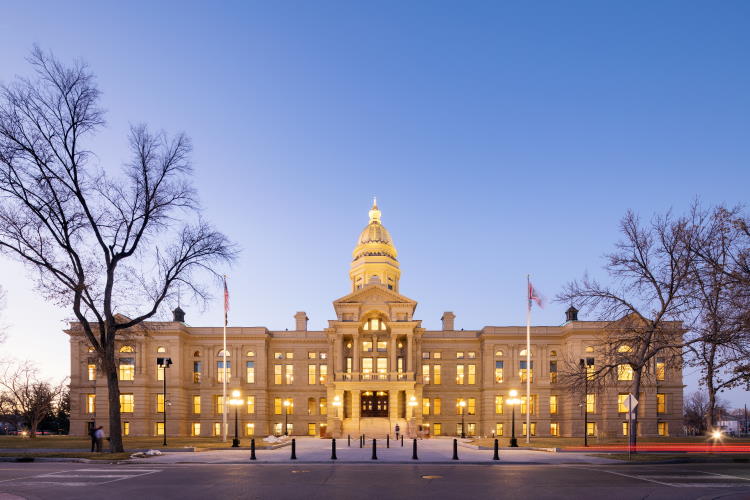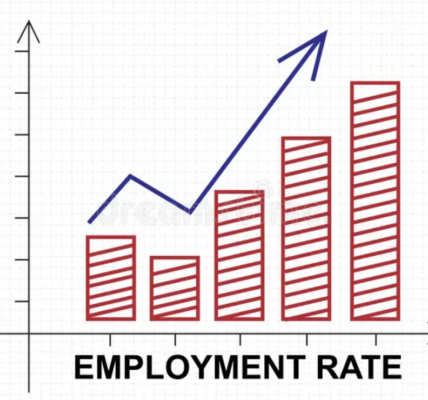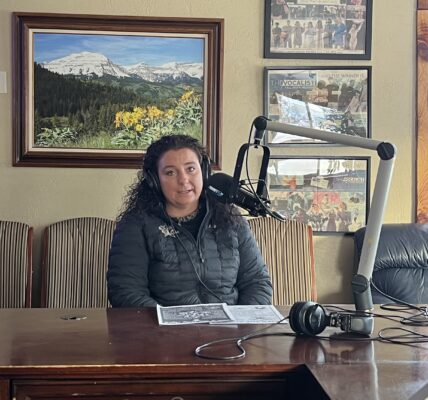Effort to strip power from secretary of state similar to school superintendent battle

By Victoria Eavis and Ellen Gerst
Casper Star-Tribune
Via- Wyoming News Exchange
CASPER — In January 2013, then-Gov. Matt Mead signed into law sweeping changes that effectively made Wyoming’s schools superintendent a ceremonial position.
It had taken lawmakers only 12 days to pass Senate File 104, which removed the elected superintendent from day-to-day management of the state’s Department of Education in favor of a director appointed by the governor.
Lawmakers had a strained relationship with the superintendent at the time, Cindy Hill, with many legislators critical of how she was running the education department.
Hill and her supporters countered that by stripping away the superintendent’s powers, the Legislature had effectively nullified the will of the voters who had elected her two years earlier.
Hill attended the governor’s signing ceremony. Afterward, she accompanied her attorney in serving Mead with a lawsuit challenging the new law’s constitutionality. A year later, the Wyoming Supreme Court struck down the law.
But its impact continued to reverberate in the form of disagreements between the Republican who backed the law and those who viewed it as a usurping of the voters’ will.
Eight years later, a similar movement is now being discussed among state lawmakers.
This time, its target is the secretary of state — Wyoming’s No. 2 elected official and the person responsible for overseeing the state’s elections.
Last month, a legislative committee moved to take elections administration out of the purview of the secretary of state. Instead, elections would be run by a separate agency with an appointed director.
The move by the Joint Corporations Committee came in response to Rep. Chuck Gray, R-Casper, securing the GOP nomination in the August primary.
Gray, who is running unopposed in the general election, called President Joe Biden’s election illegitimate and fraudulent and made voter fraud and banning ballot drop boxes a key focus of his campaign — although cases of voter fraud in Wyoming are exceedingly rare.
The committee’s vote has parallels to the so-called “Hill Bill,” with its backers saying the change is needed to address a critical part of state government — this time around, the administration of elections.
“I’m concerned based on some of the rhetoric and some of the mailers I saw in regards to our most likely upcoming secretary of state that we may be in a precarious position when it comes to election administration for the next four years,” said Rep. Dan Zwonitzer, who proposed the change and who voted for Senate File 104 when it was adopted in 2013.
But other veteran lawmakers have cautioned against pursuing a similar path, one that raises constitutional questions about the Legislature’s role in deciding executive branch duties.
“We’ve been down this road before in the education area,” Sen. Charlie Scott, R-Casper, said during the committee’s meeting.
Scott, who supported Senate File 104 at the time, called the consequences “most unfortunate.”
While there are clear parallels between the Hill Bill and the recent bill draft, some observers say the current effort is different — and this time, possibly constitutional.
When the Wyoming Supreme Court deemed Senate File 104 unconstitutional, the justices mainly focused on the part of the state’s constitution that says “the general supervision of the public schools shall be entrusted to the state superintendent of public instruction, whose powers and duties shall be prescribed by law.”
“We recognize that (the bill) does not ‘eliminate’ the office of Superintendent. It has, however, effectively marginalized the office and has left it an ‘empty shell,” Justice James Burke wrote in the court’s 2014 opinion.
But while the Wyoming Constitution lays out the superintendent’s duties, it leaves the duties of the secretary of state up to the Legislature to decide.
As Zwonitzer sees it, that provides room for lawmakers to take elections oversight away from the secretary.
“You don’t have a similar provision regarding the secretary of state, what you have is the provision … that creates the office and says the powers and duties should be prescribed by law,” said University of Utah law professor Bob Keiter, an expert on the Wyoming Constitution.
The bill draft would likely amend part of the state’s election code (22-2-103), which deems the secretary of state “the chief election officer” and says that the officeholder “shall maintain uniformity in the applications and operations of the election laws of Wyoming.”
“What the Legislature can grant, the Legislature can take away,” said David Adler, a constitutional scholar and lecturer.
Casper attorney and outgoing Sen. Drew Perkins put forward a similar line of reasoning, saying that if the Legislature has the power to assign something, it also has the power to “reassign” it.
What if, Perkins theorized, Wyoming grew to 5 million people, and the Secretary of State’s Office could no longer handle the breadth of the state’s elections?
“Does an office get as big as it gets and [the Legislature] can never adjust the office?” Perkins asked.
Perkins, who lost his reelection bid last month, also questioned why lawmakers couldn’t act if they have concerns.
“He may go in and be the greatest secretary of state in the history of the state of Wyoming or he may go in and torch the office,” Perkins said. “Do you stand back and watch while someone devastates an office?”
Hill, who finished out her term in 2014 before mounting an unsuccessful run for governor against Mead, argues that the Legislature is misinterpreting its role in scenarios like these.
“Legislators who support these efforts do not understand the constitutional principle of separation of powers,” she said in a statement to the Star-Tribune. “The Legislature must confine itself to its constitutionally prescribed role and must not seek to take unto itself powers belonging to other branches.”
If Zwonitzer’s proposal is successful, Gray would still be in charge of the state’s entire business division, among other important duties.
But though it isn’t named in the state constitution, election supervision may be one of the secretary’s “inherent powers” — basically, generally accepted duties traditionally associated with the office, Keiter said.
“When most people think of the secretary of state, they think of election responsibilities more than providing a seal on business filings,” he said.
It would be up to the courts to decide whether this bill infringes on those inherent powers.
But until Gray is sworn in and a bill is successfully passed and enacted, it can’t face a legal challenge.
“Chuck Gray might have standing once the general [election] is over,” Perkins said. “There’s nothing to sue about yet. Legislators talk about ideas.”
If a case is brought, the argument will likely center around just how far the Legislature can go in setting the powers of the office, Adler said.
“When is the Legislature using its statutory authority to govern the office in a way that does not eclipse the constitutional authority? That would always be the question. That would be the subject of constitutional law cases,” he said.
Gray, for his part, said the attempt would violate the constitution. He indicated he would push back on efforts to change the office.
“It’s nothing more than another unconstitutional power grab by leftist politicians who don’t care about the people’s right to direct their government,” he said in a statement. “I’ll do all I can to give voters the power to govern and not let these sold-out insiders get away with this.”
Gray beat Sen. Tara Nethercott, R-Cheyenne, by nearly 13,000 votes to secure the Republican nomination. He earned around half of the total votes cast in the primary.
Opponents of the proposal point out that Gray was legitimately elected by the voters of Wyoming, something that should be respected by lawmakers.
“Elections are the means by which a democracy can function,” Hill said in her statement. “Transferring duties away from elected offices nullifies the vote, making our system into something other than a democracy.”
Hill said that if lawmakers do strip the secretary’s election powers, they would essentially be claiming to “know better than the voters as to who should occupy the office.”
In Hill’s case, she and two people who voted for her brought the the lawsuit that ended up overturning the law that removed most of her powers.
Keiter, the Wyoming Constitution expert, said he would expect voters to be involved in any similar lawsuit that could be filed on Gray’s behalf.
“This would essentially nullify their choice,” Keiter said.
There may also be a “very strong” argument to be made that taking away election powers could be a violation of the separation of powers between the Legislature and the secretary’s office, which falls under the executive branch, Keiter said.
Sen. Cale Case, R-Lander, voted against Senate File 104 in 2013, but is in favor of moving forward with the secretary of state bill.
“There is a bit of right and wrong in the world,” said Case, who serves on the corporations committee. “I’m sorry, the elections weren’t stolen.”
Case partly voted against the Hill Bill because it was drawn up during the session in a hasty process that left less time for the public to weigh in. That won’t be the case this time.
The draft bill will likely return to the corporations committee for a future vote. If it succeeds in that venue, it would be months before the full Legislature considers the matter, giving the public time to speak out either for or against.
The bill limiting Hill’s power cruised through the lawmaking process, but legislation targeting the secretary’s office likely won’t have as smooth a path.
Since 2014, the Wyoming Legislature has moved farther to the right, and the part of the Republican Party angered by Senate File 104 now make up a larger faction within the statehouse.
“I think putting it on the table to talk about it is not just disrespecting the voters. Putting it through in a week in a regular session, without public input, that would be disrespecting the voters,” Case said. “We can talk about ideas in Wyoming. It’s still OK to talk about ideas.”




